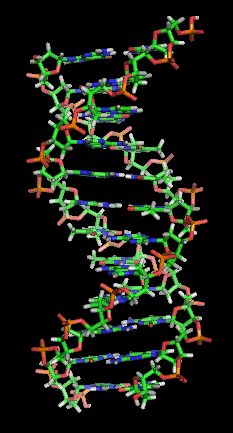The First Genetically Modified Human Could Exist Within 2 Years

The biotech firm Editas Medicine says that humans who have had their DNA genetically modified could exist within the next 2 years. The company announced that it will soon start the first trials of what it calls a groundbreaking new technique.
U.S.-based Editas is striving to become the first lab in the world to edit the DNA of patients suffering from leber congenital amaurosis (LCA), a genetic condition that causes severe vision loss at birth. Some LCA patients also experience central nervous system conditions, such as epilepsy, developmental delays and motor skill impairment.
LCA is said to be caused by defects in a gene responsible for the creation of a protein that is vital to vision. Editas Medicine scientists believe they can fix the mutated DNA using gene-editing technology known as CRISPRs.
CRISPRs, which stands for “clustered regularly interspaced short palindromic repeats,” allows scientists to edit genes “with precision, efficiency and flexibility,” Gizmodo explained in a May 5, 2015 article. Researchers have reportedly been able to create monkeys with targeted mutations and prevent HIV infection in human cells using this piece of biotechnology.
In early May, Chinese scientists said they’d successfully applied CRISPRs to nonviable human embryos, suggesting that the technology could someday be used to treat any genetic disease. It might even be used to create “designer babies” in the future, though that day is a long ways off.
Editas Medicine hopes to start a CRISPR trial with blind patients in 2017. It would be the first time the technology was ever used on humans.
But there are reasons to proceed cautiously. Every “good” medical breakthrough comes with risks and is a double-edged sword. Even penicillin, perhaps one of the simplest and most life-saving inventions in recorded history, is now overused and contributes to antibiotic-resistant superbugs.
This comes from the journal New Eastern Outlook:
“In reality, all genetic editing, especially when it alters the genetic material of subsequent generations, represents a potential threat to the genetic heritage of the entire planet with potential consequences we may still not fully understand. In a world where the “science is final” regarding humanity’s impact on the planet’s climate, demanding “urgent action” to stop or reverse it, the absence of a similar impetus behind stopping the contamination of our planet’s genetic heritage seems suspiciously hypocritical if not utterly reckless and even intentional.
[…]
Weaponization, accidents and even the prospect of globalized corporations finding, then making inaccessible the cures to diseases and conditions affecting millions such as cancer, diabetes and heart disease are all threats we now face, whether we would like to admit it or not. One point the West correctly made upon its hand wringing over China’s most recent and reckless leap forward, was that the matter of biotechnology’s profound impact on the human genome and the genetic heritage of the entire planet is no longer the subject of a “future” scenario. It is a matter of present concern.”
The real question many are asking is if we should really be manipulating nature in such a way.
Sources:

